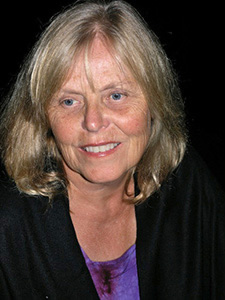|
"Did this really happen to you?"
It's a question most fiction writers dread. A question that can keep us from writing. It comes from our families: are you writing about us? From readers who want to know you beyond the words in your book or story.
I was terrified in the months before my first novel, Intrusions, came out. It begins with two sex scenes, and I imaged people coming up to me in the grocery store or at my children's school, saying, "You've had those thoughts, pervert you?" or: "How could you? You're a mother!"
That did not happen. Instead, when I was invited to give a reading, the woman who introduced me said, "I thought you'd be much taller."
It was incredibly freeing for me. Megan, the central character in Intrusions, is six feet tall, and I figured if some readers thought everything in my fiction was autobiographical, I didn't have to worry about that question: "Did this really happen to you?"
Since then, readers have told me, "I thought you were a dwarf."
I thank them.
When I was writing from the perspective of Trudi Montag, a dwarf woman in Nazi Germany, I was her height, felt her feelings. To write from inside her skin, I needed to feel what she was feeling: sorrow, bliss, rage…
It's a lot like method acting. I want to be within the authenticity of each character's life.
In Stones from the River, Trudi, is raped by four boys.
No, rape is not part of my personal history.
Yes, it has happened to me because I experienced, along with Trudi, the emotional impact of that rape.
Years ago, I wrote a story called "Tina's Room." Whenever I read "Tina's Room" to an audience, people cried. I felt horrified that I was making them cry. Excited because they were totally inside my story.
Some came up to me afterwards and said, "I'm so sorry your daughter died."
When I told them that I had two sons, that I never lost a child, they asked, "But how could you know?"
This is what happened: When my first son was born, I kept returning to his crib. I'd lay two fingers against the side of his throat to make sure he was breathing. It's something many new parents do—not as a routine, but out of a deep fear they don't dare admit to themselves.
As writers, we can draw on that fear, take it to the edge of the unimaginable, and make it authentic. To write this story from the perspective of a woman whose child is no longer breathing, I had to write from inside her skin.
Yes, I gave my blushing to Helene Montag in The Vision of Emma Blau. But Helene, like all my characters, takes that experience further. And it leads to other experiences for her.
Yes, my mother lost her swimsuit in the ocean, and I gave that incident to Hanna's mother in Floating in My Mother's Palm. But Hanna's mother is not based on my mother. Her father is not based on my father. I am not Hanna.
Giving a character one of my experiences changes the experience. Brings me into the character from an angle I have experienced. Opens up anew the mystery of how it all comes together.
Some readers will insist your fiction must have happened to you, because otherwise you couldn't have written it. After all, they, too, have written. Letters. Essays in school. They want to write about what happened to them and have a book.
"Did this really happen to you?"
What to do with that question?
Don't let it keep you from writing.
You never have to answer it.
You can ask in return, "Are my characters real for you? Do you believe what happens between them?"
Or you can approach it the way I often do. That it's really the other way around. By the time I have finished writing a book or story, I have lived through each character's experiences. And yes, by then it has happened to me.
| 

